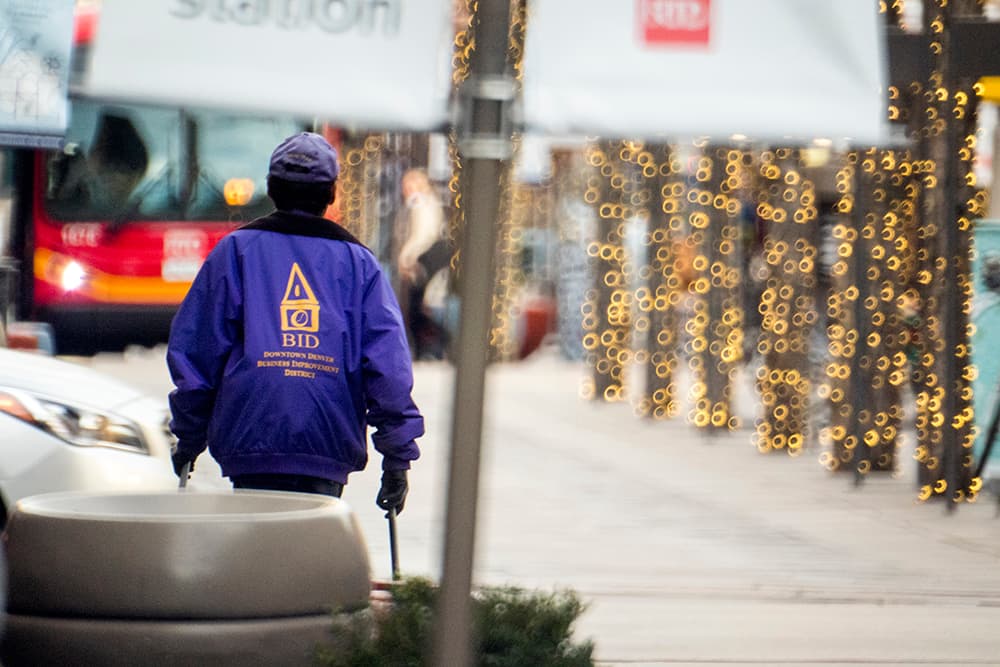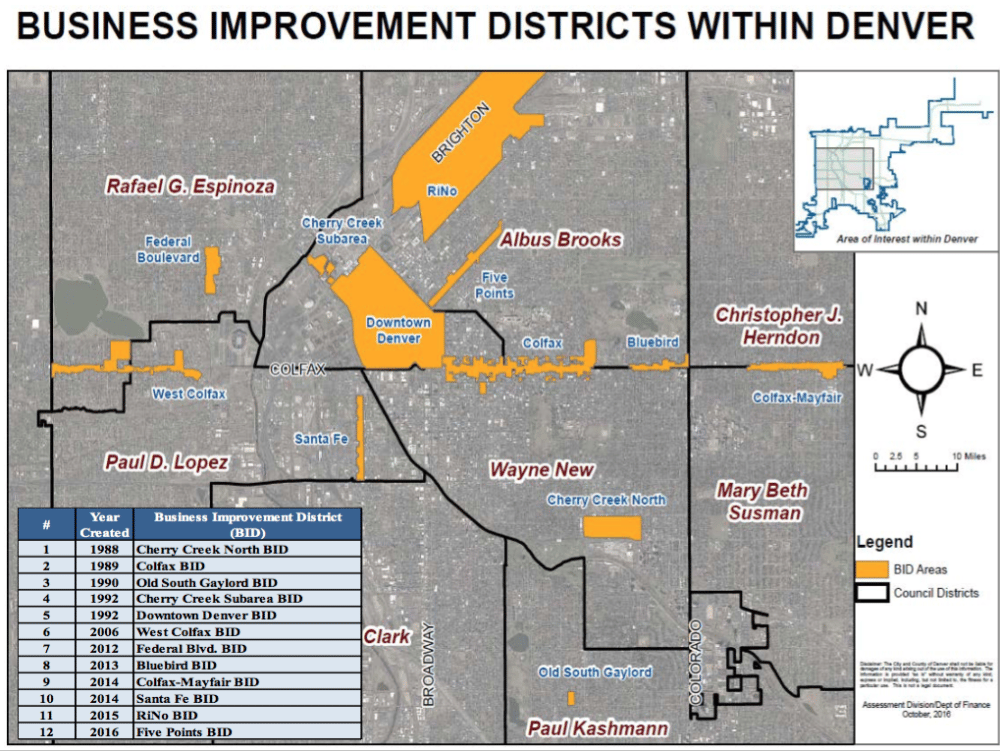
Denver's property boom will significantly boost the spending power of the neighborhood-level governments that have taken root in the city's redevelopment zones. The city's 15 "improvement districts" plan to spend almost $19 million in 2018, an increase of about 20 percent compared to last year.
These districts are an increasingly popular way to bring extra security, cleaning services and even roads and other physical improvements to areas such as downtown, Colfax Avenue and River North.
They have doubled in number in the last five years, and the city has even made $200,000 available this year to get new districts off the ground. In the near future, we could see them spread to more-residential areas such as Ballpark, and even to single-family neighborhoods in southwestern Denver.
"Denver’s definitely embracing BIDs more and more. I think you see that with the number of districts that have popped up," said Brad Segal, a local consultant whose firm, PUMA, has helped launch more than 75 of these districts nationwide.

Downtown is the big kahuna.
Let's start with the Downtown Denver Business Improvement District, the most powerful of these tiny governments and one of the oldest, with a budget of $9 million for 2018.
It spends about 40 percent its operating budget on maintenance and another million on security. So, you might see its security guards patrolling downtown and its purple-shirted maintenance workers patrolling the mall. This year, it will expand its tree maintenance program from 1,000 trees to 1,800 trees.
One focus for the downtown district in 2018: homelessness.
In its budget, the organization notes that "homeless and street youth" have been "highly visible" this year in Skyline Park. And while they don't "directly disrupt the lunchtime crowds, the presence, appearance and language of groups throughout the day can be disturbing and affect the perception of safety, particularly for families."
In response, the district plans to roll out more "safety measures" and continued activities to get more people into the park.
"One focus for the Downtown Denver Business Improvement District in 2018 is creating a safe, welcoming and inclusive environment," wrote spokeswoman Brea Olson.
River North is the new hotshot.
In 2018, the River North Business Improvement District will become the third district with a million-dollar budget, following downtown and Cherry Creek North.
Like many districts, it gets money by putting an extra tax on properties in its borders -- and the rising property values and construction in its area have boosted its budget by 45 percent this year.
Its plans for the coming year include nearly $300,000 on "placemaking," and the district also will buy new benches, bike racks and trash cans.
RiNo also is unique for its focus on the arts, which is a big part of the image that the district is cultivating. It will spend nearly $145,000 on programs that support "creatives and entrepreneurs."
Among other plans, the district will make money available to bring DIY spaces up to code. It also will contribute funding to events like the CRUSH street-art festival.
"The district gives neighborhoods a democratic tool to explore opportunities to invest in themselves in an equitable way -- everybody working together, pitching in a few extra dollars a year," said Jamie Licko, the president of the overarching RiNo organization and a consultant for the creation of districts.
Baby BIDs are coming.
Starting a district isn't cheap -- it can cost anywhere from $100,000 to $150,000 to do all the legal work. That includes convincing the owners of a majority of the property in the district to approve the creation of it.
BIDs are funded by commercial property owners, while their cousin the "general improvement district" is funded by all property owners in the district.
The city has long been interested in forming more of these districts, which are supervised by the City Council but largely set their own direction.
To that end, Denver in 2018 will have $200,000 to loan out to people interested in creating districts. The exact details aren't final yet, but the money could be available early next year -- and there's likely to be some interest. (This will replace federal money that used to do the same thing.)
Even residential neighborhoods like Athmar Park are making moves toward becoming districts as they grow frustrated with deteriorating roads and nonexistent sidewalks.
Their budgets, of course, remain just a tiny portion of Denver's $1 billion citywide budget -- but they're showing results in some of Denver's fastest growing areas. Often, they can pay to do some of the early groundwork that convinces the city to pitch in more of its own money, as happened with the Colfax Avenue streetscape project.
There's no sign they'll slow down. As they grow, Denver could encounter some questions, Segal said.
"There’s always a balance between what is the BID’s role and what is the city’s role. That’s something Denver needs to consider and these districts need to consider," he said. "And where I’ve seen pushback in other cities is when property and business owners think they’re taking on too much responsibility."
Correction: The Downtown Denver BID will maintain 1,800 trees in 2018, not 1,000.












